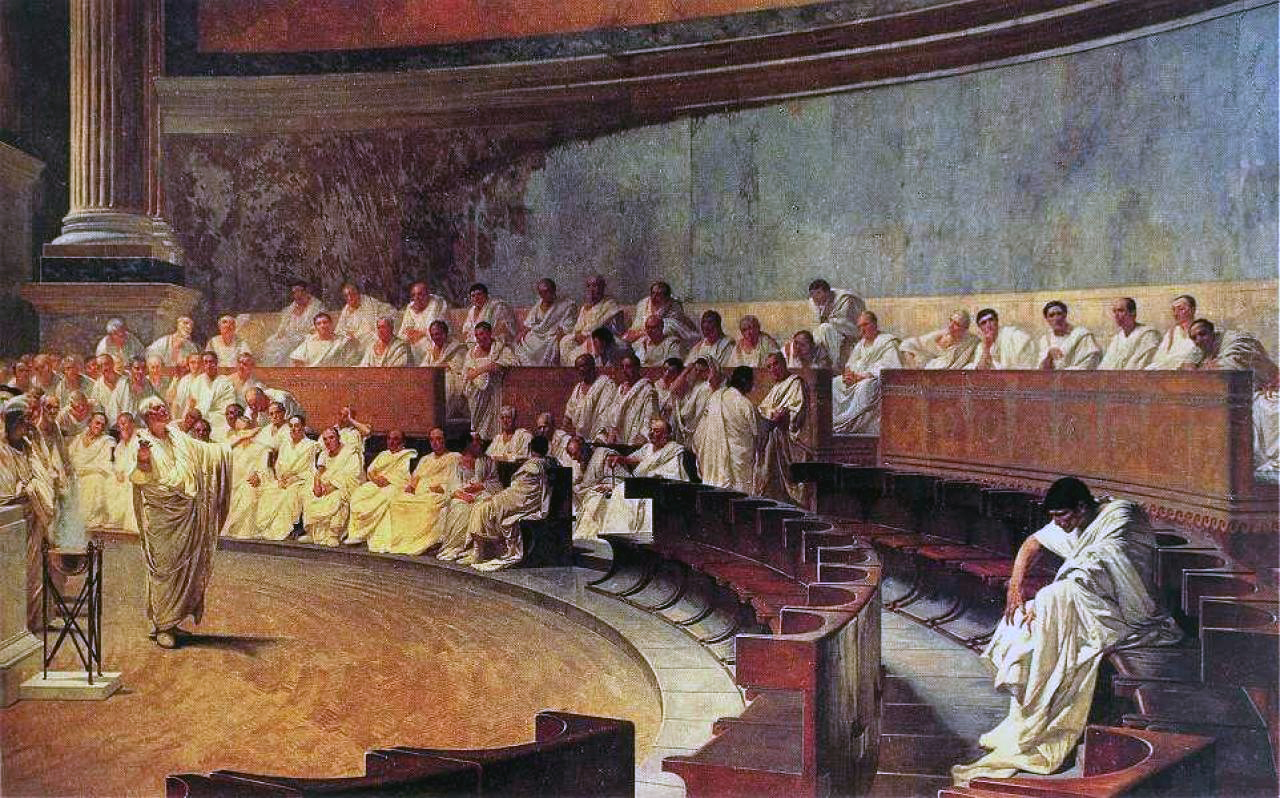Lucius Sergius Catilina
Having failed to be elected to the position of consul, he started a conspiracy to overturn the republic. His efforts were thwarted, however, by Cicero.
 Lucius Sergius Catilina was born in 108 BCE to one of the oldest patrician families, though it had declined in prestige over the years. As a young man, he aspired to restore the influence of his family.
Lucius Sergius Catilina was born in 108 BCE to one of the oldest patrician families, though it had declined in prestige over the years. As a young man, he aspired to restore the influence of his family.
He first served in the Social War under Gnaeus Pompeius Strabo in 89 BCE. During the reign of Marius, Cinna, and Carbo, Catiline played no major role. Later in the civil war between Sulla and Marius between 84-81 BCE, he supported Sulla. During the proscriptions of Sulla, he is said to have killed and beheaded his father-in-law. He is also said to have murdered his wife and son to make a more advantageous marriage.
In 70 BCE, he served abroad. In 73 BCE, he was accused of adultery with the Vestal Virgin, Fabia, though he was acquitted for his crime. Despite this accusation, he was elected praetor in 68 BCE, and served as a propraetorian governor for Africa from 67-65 BCE. After his term, he attempted to run for consul, but was disqualified as Africans sued accused him of abusing his previous position. However, when he was brought to trial, he was acquitted.
In 65 BCE, there was the supposed First Catilinarian Conspiracy. Cicero reports that there was a conspiracy to murder the new consuls, Lucius Manlius Torquatus and Lucius Aurelius Cotta. Catiline’s involvement, however, is questionable. In 64 BCE, Catiline ran once more for consul; however, Cicero was elected alongside Antonius Hybrida. The Optimates stood against him since Catiline promoted the welfare of the poor. Though he was charged for his involvement with the Sullan proscriptions, he was once again acquitted. He ran once again in 63 BCE, and he was once again defeated.
With his political ambitions thwarted, Catiline now moved to overthrow the Roman Republic in 63 BCE. His supporters included those, who were unable to ascend the political system. Through his policy of debt relief, he also appealed to the poor and to the veterans of Sulla. However, when Cicero uncovered his conspiracy, Catiline was forced to engage in heated combat with Antonius Hybrida. However, at the Battle of Pistoria, he realized that his cause was lost, and Catiline reached his end.
→ Attalus Entry: L. Sergius Catilina1
→ Smith Entry
→ Wikipedia Entry